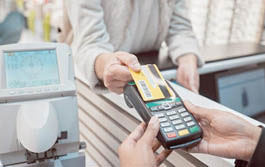
The latest figures released by the Saudi Arabian Monetary Authority (SAMA) indicate a year-on-year increase in POS spending, showing a strong recovery trajectory post-pandemic. Factors contributing to this growth include the Kingdom's ongoing efforts to diversify its economy away from oil dependency, aligned with the Vision 2030 initiative. By fostering a conducive environment for the food service industry, the government aims to create new job opportunities and stimulate local entrepreneurship.
Restaurants, cafés, and catering services have emerged as crucial players in this economic transformation. Their ability to adapt to changing consumer preferences, including a rise in demand for dine-in experiences and takeaway options, has helped sustain growth. This adaptability is particularly notable in urban centers like Riyadh and Jeddah, where culinary diversity and innovative dining concepts attract both locals and tourists.
The boost in sales can also be attributed to the easing of COVID-19 restrictions, which has led to increased foot traffic in dining establishments. Furthermore, promotional campaigns and loyalty programs have incentivized consumers to dine out more frequently, positively impacting sales figures. As a result, restaurant owners have reported increased optimism about their businesses' future performance.
Market analysts have pointed out that the Saudi food and beverage sector is evolving to meet global trends, including health-conscious options and sustainable practices. This transformation has made it more appealing to a younger demographic, which is increasingly prioritizing quality dining experiences and ethical sourcing. Restaurants that embrace these trends are likely to benefit from enhanced consumer loyalty and stronger sales growth.
The expansion of international restaurant chains in Saudi Arabia has played a pivotal role in the industry's dynamism. These establishments often bring new concepts and innovations to the market, raising competition and encouraging local businesses to elevate their service offerings. The result is a richer culinary landscape that caters to diverse tastes and preferences.
Technological advancements have further fueled this growth, with many restaurants investing in digital payment systems and mobile ordering platforms. The integration of technology has streamlined operations and improved customer experience, allowing businesses to serve a larger volume of customers efficiently. Many establishments have also embraced social media marketing to reach younger consumers, amplifying their presence and attracting a broader audience.
Experts predict that the upward trend in POS spending will continue, driven by the ongoing expansion of the hospitality sector and an expected increase in tourism. Major events, such as international conferences and exhibitions, are anticipated to draw visitors from across the globe, boosting demand for dining services. Moreover, the upcoming FIFA World Cup in Qatar, situated near Saudi Arabia, is expected to generate spillover effects, encouraging increased travel and spending in the region.
SAMA’s report emphasizes the importance of the service sector in supporting the overall economic growth of Saudi Arabia. As the country navigates a post-oil landscape, the restaurant and café industry will likely remain a critical component of economic diversification efforts. Authorities are focusing on improving infrastructure, enhancing regulations, and providing support for entrepreneurs to encourage sustainable growth in this vital sector.
The outlook for the Saudi restaurant and café industry is optimistic, with continued investments expected in both physical and digital realms. As consumer preferences evolve and competition intensifies, businesses will need to remain agile and responsive to market changes. This adaptability will be crucial for maintaining momentum in POS spending and ensuring long-term viability.
Topics
Gcc
